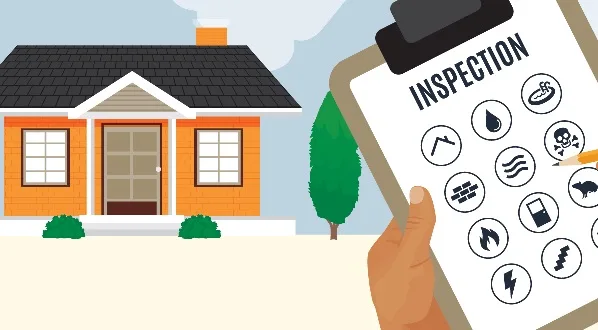Buying or selling a home is a major financial decision that requires careful planning and consideration. One important aspect of this process is the role of a home inspector. A home inspector plays an important role throughout the real estate transaction process by providing valuable information about the condition of the property. Additionally, a home inspector in Ocean County, NJ, reveals underlying causes in a home that may not be visible to buyers, saving them from expensive repair costs after buying the property.
In this blog post, we will discuss the role of a professional home inspector in Ocean County, NJ, in detail. From what they do to how they report their findings, you’ll get an overview of this crucial player in your real estate transaction.
What Does a Home Inspector Do?
A professional home inspector in Ocean County, NJ, is someone who specializes in evaluating and assessing residential properties. They inspect various aspects of homes, such as electrical systems, plumbing, heating/cooling systems, roofs, foundations, insulation, etc., to identify any problems or red flags for potential buyers or sellers.
The main objective of hiring a home inspector is to identify any defects or issues with the property that may not be readily apparent during regular visits. While some sellers will have already corrected any issues before listing their property for sale, it’s always better to have an expert evaluate it thoroughly.
Home inspectors conduct thorough inspections according to industry standards; do not expect them to appraise it like valuation professionals would do, given that an inspection implies pointing out structural plights and appreciating your house’s worth going forward.
Having professional analysis can give peace of mind knowing accurate damages/estimated repairs that might exist within a house accurately examined through cautious observation rather than trying to perform scrutiny yourself, which could intimate inefficiency, especially when overlooking significant defects caused by being untrained individuals.
How Does A Home Inspection Work?
Generally speaking, during pre-purchase contingencies (or as otherwise agreed), buyers hire certified Home Inspectors to conduct visual examinations based on sample walking-throughs looking for signs like:
– Cracks
– Sagging ceilings
– Peeling paint
– Leaking/plumbing/heating issues
– Etc.
They may take a closer look at things that require much closeness to diagnose, which could help buyers in making informed decisions when purchasing or selling a home. Every home inspection report comes with thorough detailing on the property’s current conditions as an outcome of the scrutiny performed earlier; be prepared to give some time to inspect.
In most cases, inspections come within generalized checklists tailored based on recognized industry standards per governing region (you can refer to the American Society of Home Inspectors found here http://www.ashi.org/). Some inspectors have chosen specialized areas, so they undergo additional training and testing. By doing checks like these, it increases the chances of minimum defects left behind for future reference.
The process of hiring a home inspector sounds familiar, but consulting with your agent first is key before even contacting an inspector. This provides a chance for realtors to guide you methodically and accordingly based on collective expertise gathered over time in regard to the best options(s) for you going forward. This prevents erroneous decision-making that might result from neglecting their guidance.
What Can You Expect from A Home Inspection Report?
A home inspection report delivers detailed information about errors detected during examination plus estimates as well. The core part of every report will show characteristics of problems found by the inspector during checking sessions. Some home inspectors might categorize them under essential “must-haves,” while some laid down under non-necessary suggestions although advised fixing. From another angle, though, sellers should already ensure all the critical repairs are done beforehand following contract exception terms due pre-agreed closing date.
Regardless if you are buying/selling property, it’s better not to prejudge your potential transaction without an adequate assessment conducted by licensed Home Inspectors first. Having reliable reports helps sell your properties faster by providing transparency to buyers. This also helps in transparent negotiation, and buyers do not have to worry about costly repairs down the line.
Conclusion
In conclusion, a home inspector is an essential part of the real estate transaction process. They provide valuable information about the condition of a property and help buyers and sellers make informed decisions about their investment. The inspection process can be done smoothly if conducted according to industry standards. Hence schedule home inspection consultations as soon as a deal is reached. Taking such actions prevents undue delays from contingencies that might arise from clashing parties due to misaligned interests on the properties’ defects coverage. With a good understanding of what home inspectors do, you’re now more informed on making wise transaction choices when contemplating making real-estate deals!





